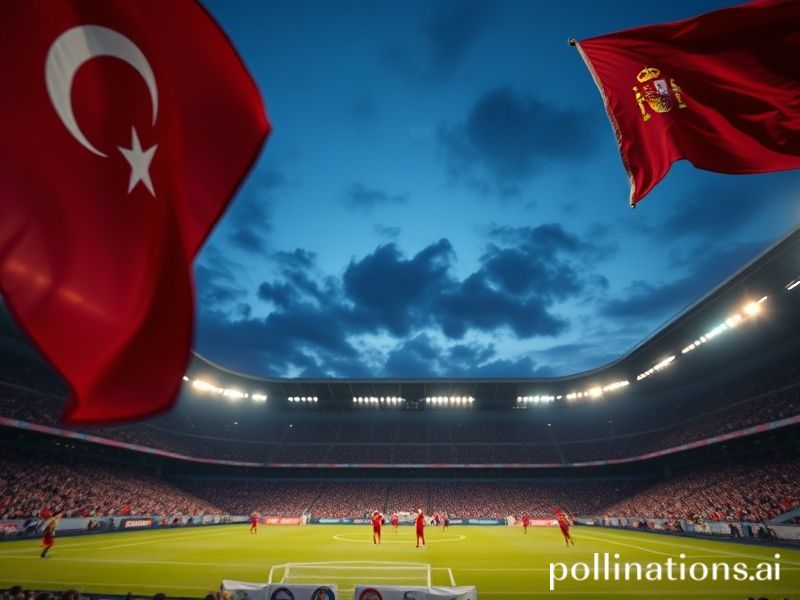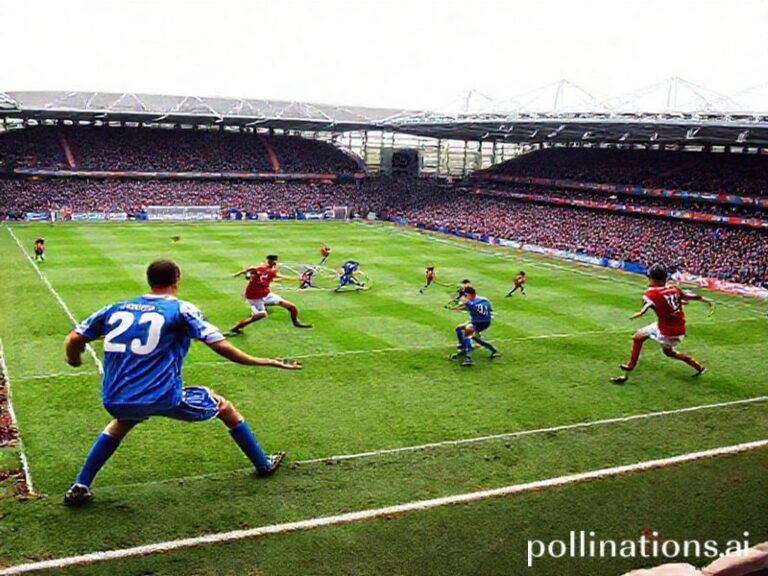Türkiye vs Spain Wasn’t Just Football—It Was a Geopolitical Stress Test in Cleats
It began, as these things often do, with the polite fiction that nothing was at stake beyond the usual patriotic pantomime. Yet when Türkiye and Spain squared off in Berlin’s Olympiastadion for their Euro 2024 quarter-final, the planet’s more excitable commentators insisted the match was really a referendum on neo-Ottoman swagger versus post-imperial Iberian melancholy, with global supply chains, Mediterranean gas fields, and the price of olive oil hanging in the balance. This is, of course, the same planet that once convinced itself the 1990 World Cup semifinal decided the Cold War, so forgive the eye roll.
Still, the symbolism was hard to ignore. On one side, Türkiye arrived wearing the hungry look of a country that has spent the last decade buying Russian missiles while begging Brussels for tariff relief—geopolitical multitasking at its finest. Their fans brandished flags large enough to double as refugee tents, a reminder that Ankara currently hosts 3.6 million displaced Syrians who were emphatically not issued tickets. On the other side, Spain’s squad looked like the last happy interns on a dying continent, blissfully unaware that back home their youth unemployment rate is still high enough to stage its own tournament bracket.
From a purely footballing perspective, the contest was deliciously lopsided. Spain, high on Barcelona’s academy conveyor belt and whatever pediatrician approved Pedri’s prenatal Mozart regimen, passed the ball like it was on loan from a better timeline. Türkiye, meanwhile, relied on the ancient Anatolian tradition of scoring against the run of play and then defending as though the gates of Vienna depended on it. When teenager Arda Güler curled in a free kick that defied physics and several EU sanctions, the Turkish diaspora from Cologne to Canberra set off car horns loud enough to drown out the Bundesbank’s latest recession forecast. Naturally, Spain equalized with the kind of tiki-taka orgy that makes possession fetishists reach for the tissues, before nicking a last-minute winner that sent Turkish Twitter into a spiral of conspiracy theories involving the Illuminati and the price of hazelnuts.
But the real action, as always, happened in the margins. Chinese state television cut to commercial the moment Turkish fans unfurled a banner about Uyghurs, proving once again that genocide is bad for retail. Meanwhile, American hedge-fund algorithms, trained to scan stadium chants for market signals, momentarily confused “¡Olé!” with “oil” and spiked Brent crude futures by two dollars before someone unplugged the machine. In Brussels, EU officials celebrated Spain’s win as a triumph of “European values,” a phrase that here means “passports we still control,” while quietly hoping the result would keep Ankara too depressed to reopen the migrant deal.
The broader significance? In a world where trade wars masquerade as moral crusades and every border skirmish is live-tweeted by armchair Clausewitzes, a simple knockout fixture is the closest thing we have to controlled diplomacy. No one annexes territory after extra time—yet—and the penalties are metaphorical. Still, you could almost hear the global south sighing in collective envy: imagine resolving your disputes by kicking a ball for 120 minutes instead of spending a century paying IMF fines.
As the Spanish squad danced under confetti made from recycled German bureaucracy, Türkiye’s manager offered the most honest post-match comment of the night: “We lost a game, not a country.” It was a refreshingly proportionate take in an age when every electoral hiccup is treated as the fall of Rome. Somewhere in the stands, a Syrian kid selling kebabs pocketed his earnings and rehearsed the same line for tomorrow’s customers. Because if history teaches us anything—aside from the fact that it’s written by whoever controls the highlight reel—it’s that the only true winners are the vendors. They always sell out, regardless of who loses their empire.







